Dialogue or Division? Social Action Weekend in Newberry Highlights the Cost of Political Hypocrisy
- CUBNSC

- Sep 13, 2025
- 7 min read

By Javar Juarez | CUBNSC | September 13, 2025
Newberry, S.C. – St. Mark AME Church held its inaugural Social Action Weekend this Saturday at Newberry High School’s mini theatre, bringing together legislators, educators, and community leaders for a frank conversation about policy, justice, and the challenges facing South Carolina families.

The event was moderated by veteran journalist Cynthia Hardy and national political strategist Antjuan Seawright, who framed the gathering as an opportunity for open dialogue rather than partisan bickering. “This is not about parties or politics—it is about people and progress,” Hardy said in her welcome.
Panelists and Organizers
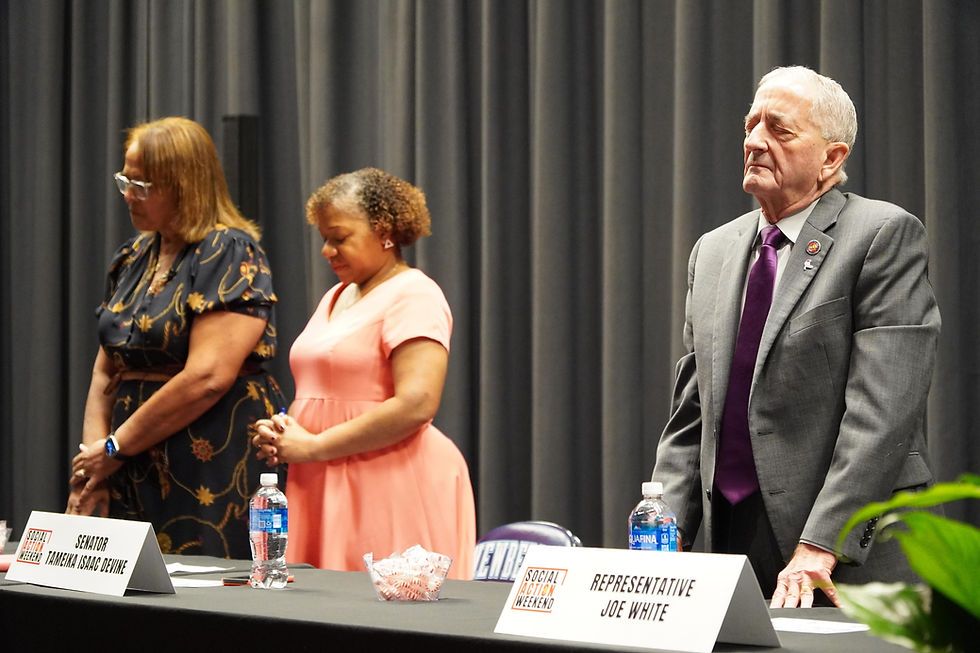
The panel featured Representative Joe White (R-Lexington & Newberry Counties), Senator Tameika Isaac Devine (D-Richland), and Senator Margie Bright Matthews (D-Hampton, Colleton, Beaufort, Jasper, Charleston)—who drove three hours to participate.
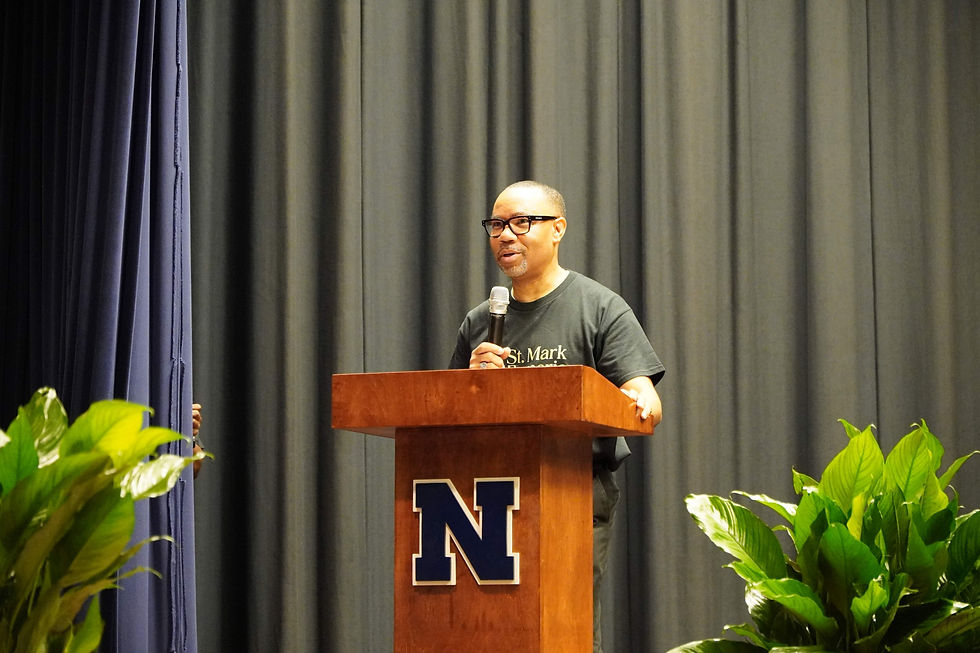
Event organizer Dr. Reggie Wicker, a longtime Newberry educator, said his local church was inspired by the larger AME Church’s historical role in social justice and wanted to revive that tradition locally. “This is about creating a more informed citizenry, pathways to leadership, and legislative insight in real time,” Wicker explained.
Heated Exchanges on Violence and Hate Crimes
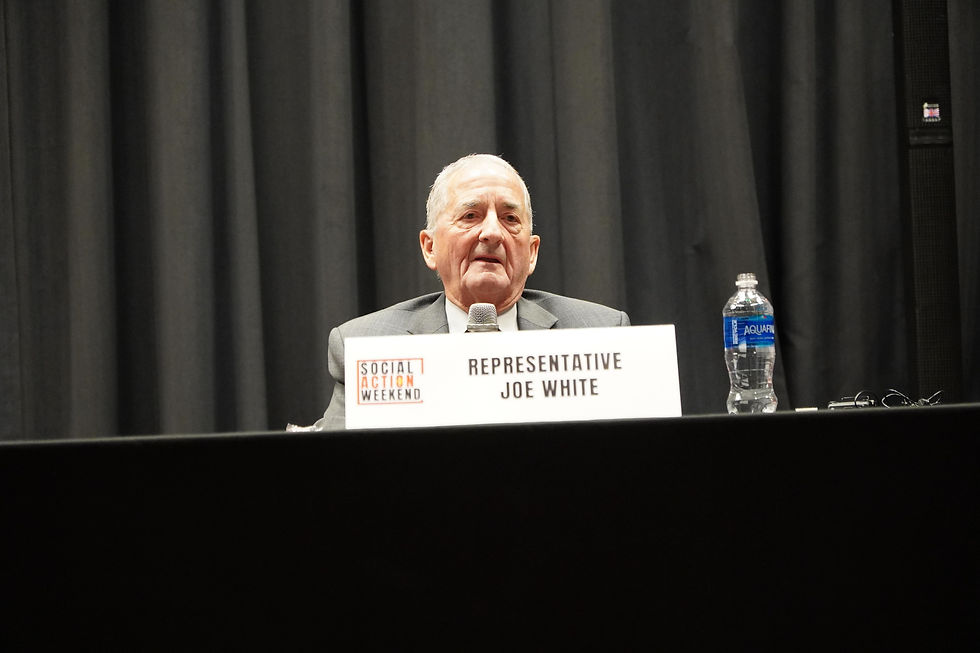
The discussion quickly turned intense as panelists debated political violence in the aftermath of recent national tragedies. Representative Joe White spoke emotionally about the assassination of conservative activist Charlie Kirk, tying the killing to what he described as the erosion of the American family unit. To underscore his point, he referenced an image circulating online that depicted Kirk shot with the caption: “It’s good to see him finally leaning to the left.”
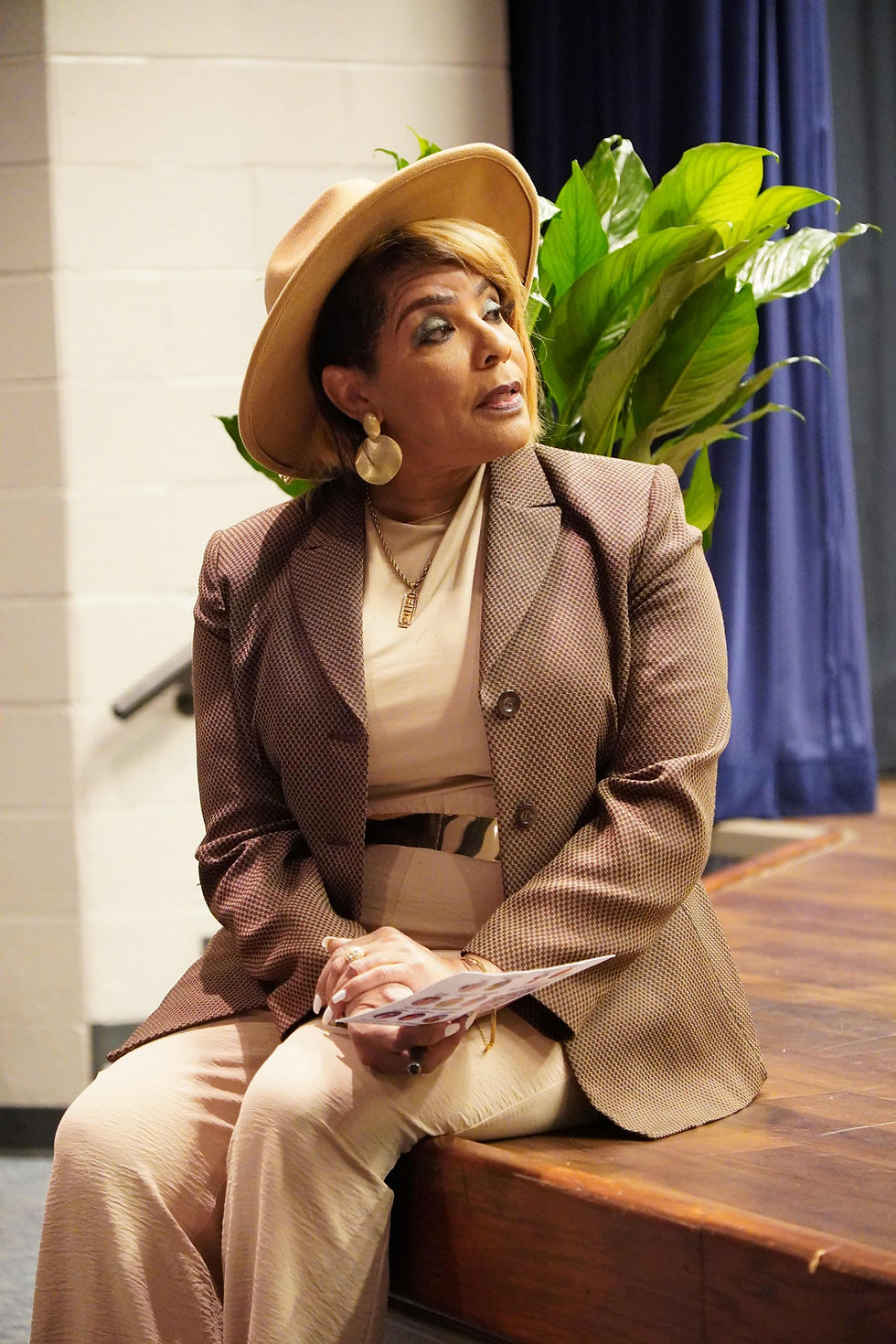
Before he could continue, moderator Cynthia Hardy interjected to reset the conversation. “I think it’s important at this point to put some balance,” she said firmly. “We have to acknowledge the political temperature in our country. And while we don’t have to debate whether Charlie Kirk was right or wrong, we know that a number of his comments offended many people. Any conversation has to acknowledge that. The political discourse in this country is dangerous—it’s dangerous, okay?” Hardy warned.
She added that White’s point about escalating rhetoric was not isolated: “In some parts of the country, they’re calling for civil war. And they’re not talking north and south—they’re talking Black and white. So we just need to keep that in mind.” Her intervention underscored both the volatility of the moment and the need for accountability in how leaders frame public debate.

Sen. Devine countered by calling out the “hypocrisy” of selective outrage in political discourse. “It wasn’t right when Steve Scalise was shot at. It wasn’t right when something happened to Paul Pelosi. None of this is right, no matter whose side you’re on,” she said, urging accountability across party lines.

Senator Margie Bright Matthews, who succeeded the late Senator Clementa Pinckney after the Mother Emanuel massacre, delivered one of the sharpest critiques of the day. She reminded the audience that South Carolina remains one of only two states without a hate crimes law and warned of the real-world consequences: “If Charlie Kirk was assassinated at Newberry College or at USC—pick your school in South Carolina—the prosecution would not be able to call for the death penalty because this state still refuses to pass a hate crimes law.”
Matthews described her long fight to move the Clementa C. Pinckney Hate Crimes Act through the legislature, only to face repeated stonewalling from far-right Republicans who distort the bill as something solely about race or LGBTQ speech. “This issue is about protecting people from being killed because of who they are—whether for their religion, their politics, or their service as law enforcement. All killing is wrong. Anybody being killed is wrong,” she declared .
She argued that opponents’ “skewed views” have left prosecutors hamstrung and unable to fully punish hate-motivated crimes, even when they devastate entire communities. Matthews connected this refusal to a broader political climate of division and festering hostility. “Ever since Obama was elected, the political temperature in America has been ramped up—and it’s been festering with hate. We don’t communicate with each other anymore. We think that just because you’re a Republican, we can’t go across the aisle and talk to you. How do you know if you have anything in common if you don’t start talking?”
Her remarks challenged both lawmakers and everyday citizens to confront not just violence itself, but the silence, partisanship, and fear that allow hate to persist.
Kitchen-Table Issues: SNAP, Groceries, and the Economy

The conversation shifted to everyday concerns, beginning with Senator Tameika Isaac Devine’s sharp critique of the Governor’s recent executive order targeting SNAP benefits. Devine explained that the order directs the Department of Social Services to seek a federal waiver that would restrict what low-income families can purchase with their food assistance. “When—because it’s very likely it will be granted—this waiver takes effect, it will limit what people are able to purchase with SNAP benefits,” she warned .
What made the move more troubling, Devine argued, was that the Governor used executive authority to impose restrictions that lawmakers had already debated and blocked. In the final days of the legislative session, Sen. Devine and Sen. Bright Matthews successfully stopped a similar proposal from being passed into law. But, as she told the audience, “our executive branch, our Governor, is able to go around and do it another way.”
Devine called the order “an attack on poor people” that ignores systemic issues like food deserts and access to affordable groceries. She emphasized that the restrictions won’t just hurt families, but also strain small grocers, who may lack the technology to comply with new rules on what can and cannot be purchased. “Local grocery stores won’t be able to have the computer systems to address what this executive order is asking them to do,” she noted .
Beyond the mechanics of the policy, Devine urged attendees to stay informed and engaged. She encouraged residents to download the South Carolina Legislature app to track bills and hold lawmakers accountable, stressing that silence is often misinterpreted as apathy.
The Economics of SNAP
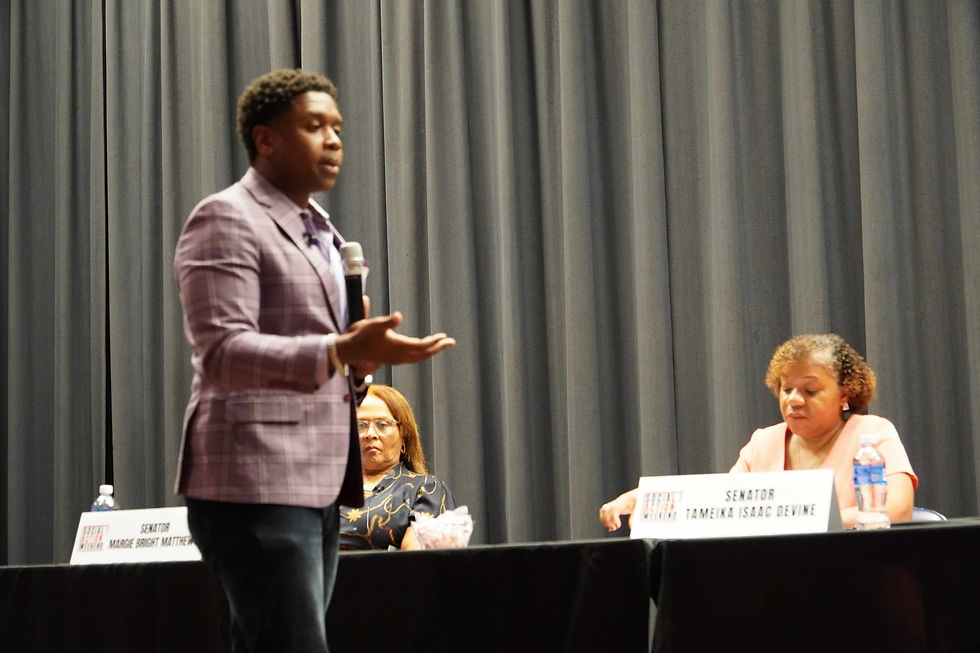
Moderator Antjuan Seawright brought the conversation down to the kitchen table by reframing how South Carolinians should think about SNAP. Too often, he said, the program is caricatured as a handout for “people sitting around in the projects with three or four babies on their arms.” In reality, he stressed, the benefits ripple across the economy: “Veterans and their spouses receive SNAP. Seniors receive SNAP. Children in public schools and their parents benefit from SNAP. Banks benefit. Grocery stores, farmers, producers, small businesses—the entire community benefits from SNAP.”
Seawright warned that proposed federal cuts would strip roughly $100 million from South Carolina’s economy, with damage extending far beyond poor families to grocers, farmers, and local businesses. “I’m not trying to push one agenda or the other,” he said, “but as a South Carolinian who cares about our state, I know that’s going to be harmful, and we’re going to feel it.”
Senator Margie Bright Matthews built on that point by arguing that SNAP alone cannot solve the deeper inequities driving poverty. She highlighted the geographical divide across South Carolina—where affluent areas like Hilton Head have stronger schools and infrastructure, while rural communities in Colleton, Hampton, Allendale, and Jasper counties face chronic underinvestment. Rather than blocking education and workforce programs, she urged Republicans to expand opportunities in disinvested areas, enabling job creation and reducing the need for food assistance in the first place. “The most important thing they can do for us is to allow our local communities… to continue to create jobs so that folks in Hampton and Colleton can have somewhere to go, so that they won’t need SNAP benefits because they’ll have jobs,” she said .
Together, their remarks reframed SNAP not as charity but as part of a larger cycle of economic justice—where protecting benefits today and investing in education and jobs tomorrow are both essential to lifting families out of poverty.
Kitchen Table Issues: A Disconnect on Priorities
During the discussion of “kitchen table issues,” moderator Antjuan Seawright pressed Representative Joe White to reconcile his party’s agenda with the everyday concerns of Newberry residents. “When you think about the agenda that comes out of the Republican caucus—when you match that up to some of the things you’ve heard here, the issues people in Newberry care about—what would you say are the top priorities you are advocating for?” Seawright asked .
Rather than addressing SNAP cuts, food insecurity, or rising grocery costs, Rep. White pivoted to a sweeping critique of families and education. He argued that South Carolina’s greatest problem is that children are entering first grade unprepared, blaming overworked young mothers who “don’t have the time or energy to put into their kids.”
He suggested churches like St. Mark AME could run afterschool programs where “old people like me can love them… because their mother doesn’t have time to show them what love feels like.”
White went further, proposing that by ninth grade, schools should decide which students will never go to college and divert them into trade programs. He predicted that artificial intelligence would soon eliminate most “brain jobs”—even doctors and lawyers—and insisted that only hands-on trades would ensure future success.
For many in the audience, the answer was jarring. At a moment when the conversation centered on rising costs, SNAP restrictions, and struggling small grocers, White’s response highlighted a deep disconnect between the policy concerns raised by constituents and the ideological framing offered by their representative.
Social Action Weekend: Looking Ahead

While tensions occasionally flared—particularly during the exchange over political violence and the assassination of conservative activist Charlie Kirk—the forum underscored the importance of dialogue and accountability. Senator Tameika Isaac Devine framed the moment as a mirror for the nation: “We keep hearing people say this is not who we are. But this is exactly who we are, because this is what we are continuing to show. The challenge is: what role am I personally going to play to change it?”
Her comments reflected the heart of the debate: how America processes political discord, selective outrage, and the hypocrisy of condemning violence only when it affects one’s own side. Devine pushed the audience to think beyond partisanship, insisting that both leaders and everyday citizens must hold their families, neighbors, and political allies accountable when rhetoric crosses dangerous lines.
In that spirit, the weekend’s closing on Sunday with Congressman James E. Clyburn and the South Carolina State University Choir is set to tie social action to moral responsibility—reminding Newberry that real change comes not just from discussion, but from the courage to confront violence, division, and injustice wherever it appears.

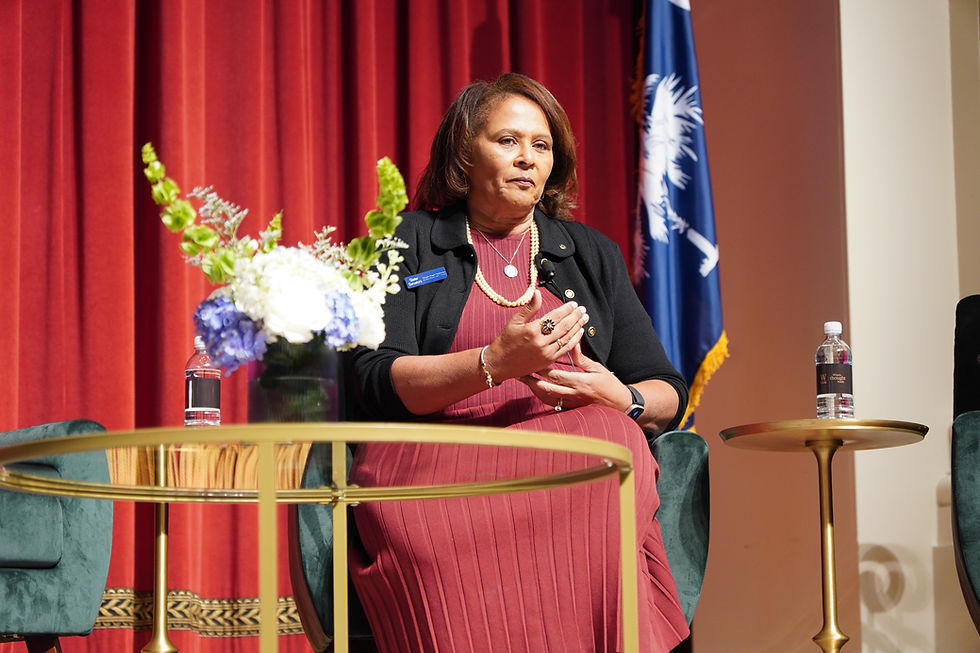


Comments